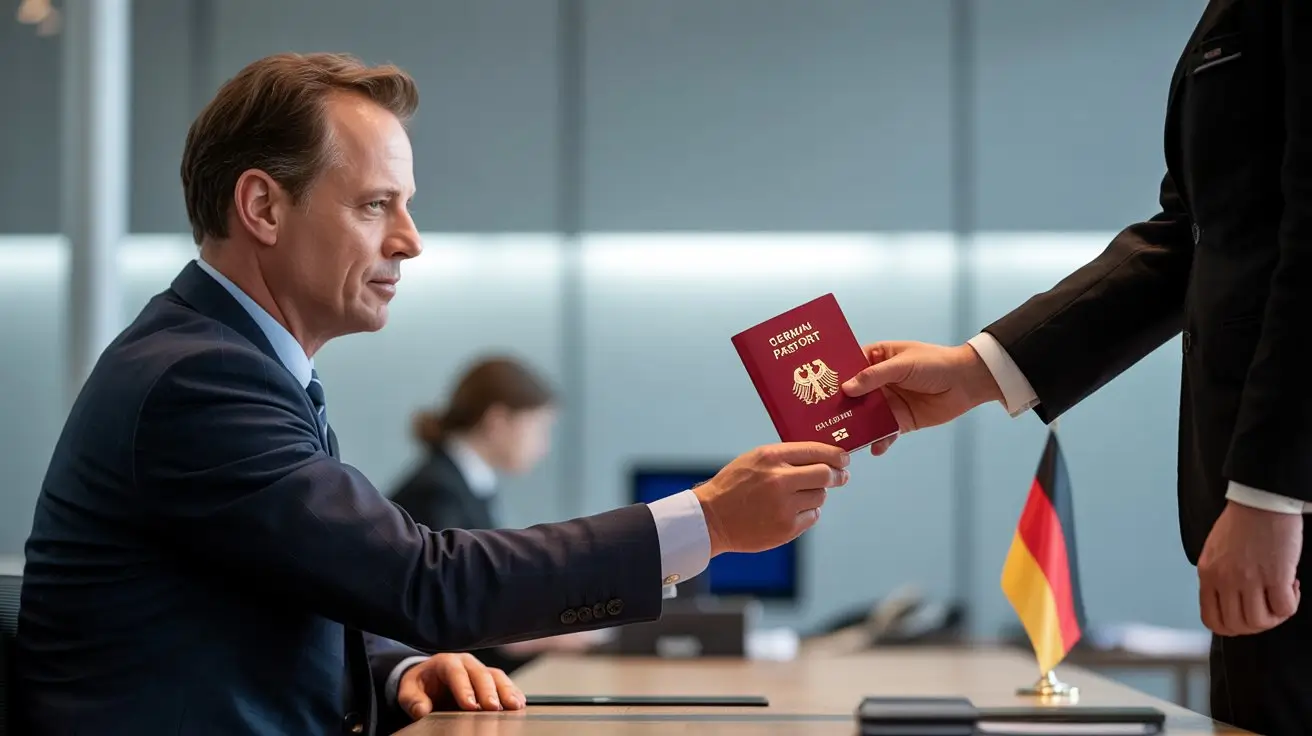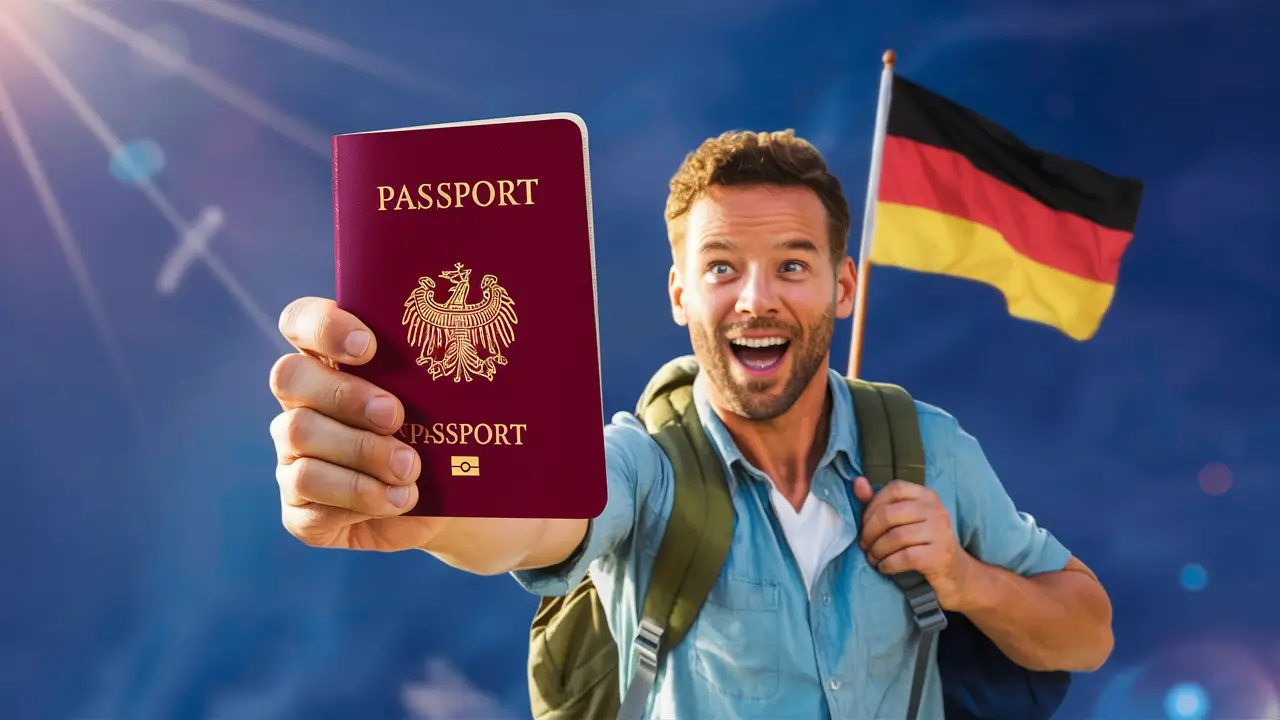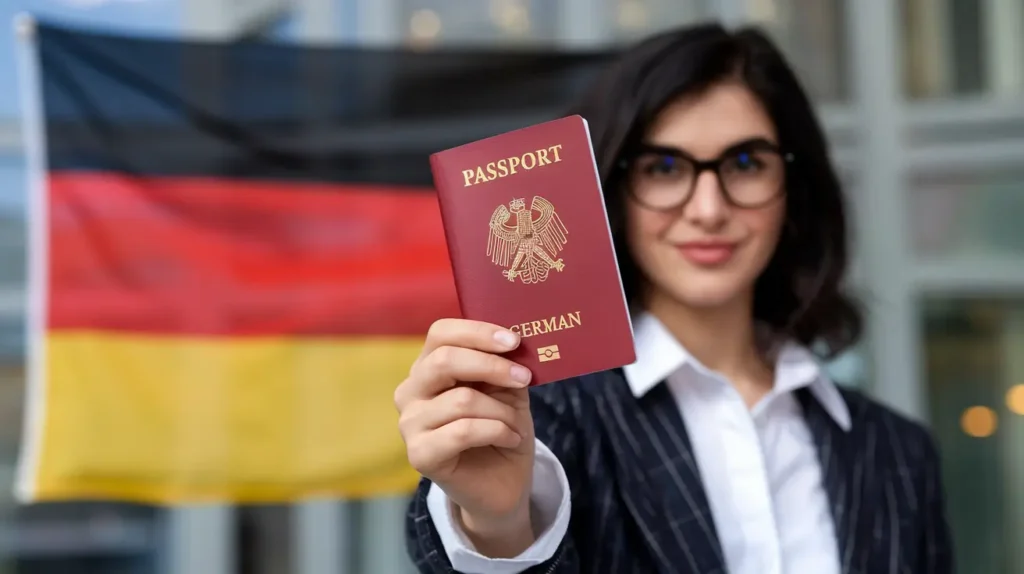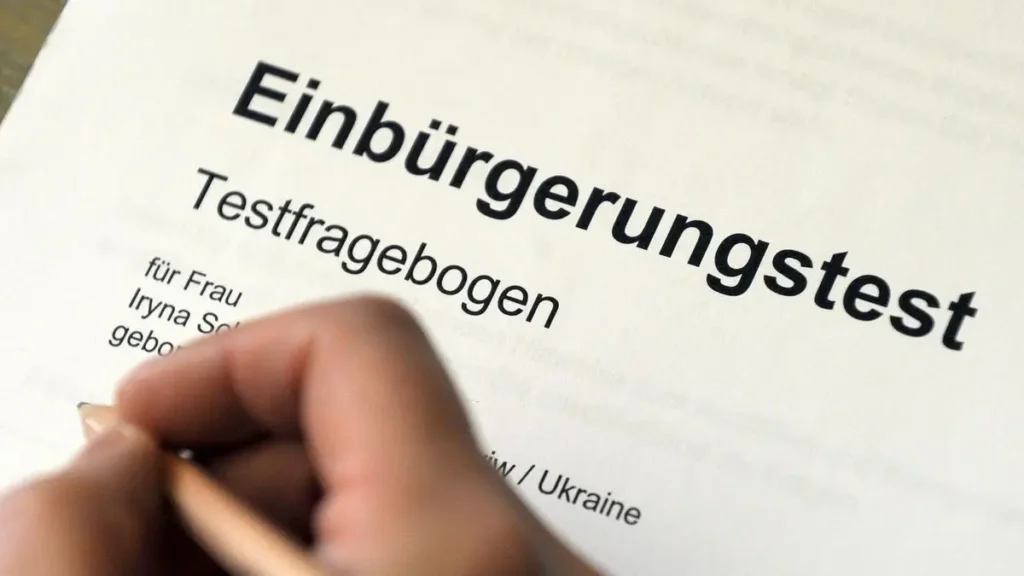Germany, with its robust economy and high quality of life, attracts millions of foreigners seeking to establish permanent roots within its borders. While the standard pathway to German citizenship typically involves fulfilling residency requirements, demonstrating language proficiency, and passing a citizenship test, there exists a less-known avenue: citizenship through special contributions. This pathway acknowledges exceptional individuals who have made significant contributions to German society, culture, science, or economy.
But what exactly constitutes a “special contribution” in the eyes of German immigration authorities? Is this pathway accessible to regular immigrants, or is it reserved for the extraordinarily talented? How does one navigate this less-traveled road to German citizenship? And most importantly, what are your chances of success if you choose to pursue this option?
What Are Special Contributions in German Citizenship Law?
The legal foundation for granting citizenship based on special contributions lies in the German Nationality Act (Staatsangehörigkeitsgesetz or StAG). Specifically, Section 8 allows for discretionary naturalization when Germany has a public interest in granting citizenship to an individual. This provision creates the framework for recognizing exceptional contributions across various fields.
Special contributions typically fall into several categories:
| Contribution Area | Examples | Potential Weight |
|---|---|---|
| Cultural & Arts | Renowned artists, musicians, authors | High |
| Scientific Research | Leading researchers, innovators | Very High |
| Sports | Olympic athletes, international competitors | Medium-High |
| Economic | Major investors, job creators | High |
| Social | Humanitarian work, community development | Medium |
These contributions must generally be exceptional and substantial. The law expects them to bring significant value to Germany at the national level, not merely within a local community.
Who Can Apply for Citizenship Through Special Contributions?
Citizenship through special contributions isn’t meant for the average immigrant. This pathway targets individuals who stand out in their respective fields and have demonstrable achievements that benefit Germany. While the law doesn’t specify explicit criteria, immigration practice has established certain patterns.
Potential candidates typically include:
- Internationally recognized scientists or researchers
- Successful entrepreneurs who have created substantial employment in Germany
- Cultural figures whose work has enhanced Germany’s international standing
- Elite athletes representing Germany in international competitions
- Individuals making extraordinary humanitarian contributions
It’s important to note that merely being successful in your profession usually isn’t sufficient. The contributions must be exceptional and bring particular value to German society.
How Does the Special Contributions Pathway Differ from Standard Naturalization?
The special contributions pathway offers several advantages compared to standard naturalization:
Shortened residency requirement: While regular naturalization typically requires 8 years of legal residency (reducible to 6 or 7 years in certain cases), exceptional contributions may lead to citizenship after a significantly shorter period.
Language requirement flexibility: The standard B1 German language requirement may be reduced or waived in exceptional cases.
Dual citizenship allowance: Germany generally requires renunciation of previous citizenships, but exceptions are more commonly granted in special contribution cases.
“My journey to German citizenship was unconventional. After developing technology that significantly improved renewable energy efficiency and creating a company that employed over 50 Germans, authorities approved my citizenship application after just three years of residency. They recognized that my work advanced Germany’s green energy goals and economic interests.” — Dr. Sarah Chen, Tech Entrepreneur
The key distinction is that this pathway focuses more on merit and potential future contributions than on integration time. However, this comes with higher scrutiny and less predictable outcomes.
What Evidence Must You Provide to Demonstrate Special Contributions?
Documenting special contributions requires substantial evidence. Immigration authorities expect comprehensive proof of both the contributions and their significance to Germany.
Essential documentation typically includes:
- Professional recognition: Awards, patents, or academic citations
- Economic impact statements: Job creation figures, tax contributions, investment amounts
- Letters of recommendation: From German institutions, prominent figures in your field, or government officials
- Media coverage: Articles or features highlighting your contributions
- Impact assessments: Studies or reports quantifying your contributions’ value to Germany
“When I applied for German citizenship based on my scientific research, I included letters from three university presidents, documentation of my research grants totaling over €4 million, and evidence that my lab had trained 28 German doctoral students. I also included press coverage of our breakthrough in medical imaging technology now used in hospitals across Germany.” — Professor Miguel Alvarez, Medical Researcher
The key is to quantify your contributions whenever possible and establish a clear connection between your work and German interests.
Are There Examples of Successful Special Contribution Naturalizations?
Several public examples illustrate successful cases:
Cultural Contributions
The pianist Igor Levit received German citizenship in recognition of his cultural contributions to Germany’s music scene, despite having lived in Germany for less than the standard requirement.
Scientific Contributions
Numerous researchers at institutions like Max Planck Institutes or Fraunhofer Institutes have received expedited citizenship based on their scientific contributions.
Economic Contributions
Several startup founders in Berlin’s tech ecosystem have received citizenship through this pathway after creating successful companies that employed dozens of Germans and attracted international investment.
External resources like the Federal Office for Migration and Refugees occasionally publish case studies, although most cases remain confidential due to privacy considerations.
How Long Does the Special Contribution Application Process Take?
The timeline for special contribution applications varies significantly, but it typically involves:
| Process Stage | Typical Duration | Influencing Factors |
|---|---|---|
| Initial Assessment | 3-6 months | Complexity of contribution evidence |
| Security Clearances | 2-4 months | Applicant’s background, countries of prior residence |
| Decision | 3-6 months | Level of government interest, policy priorities |
| Total | 8-16 months | Individual case complexity |
This timeline often moves faster than standard naturalization processes, particularly when there is strong government interest in the applicant’s contributions. However, the discretionary nature of these decisions means timelines remain unpredictable.
What Are the Legal Requirements Beyond Special Contributions?
Even through the special contributions pathway, certain core legal requirements remain:
- Legal residency: You must hold a valid residence permit in Germany
- Financial stability: Demonstrating the ability to support yourself without social assistance
- Clean criminal record: No significant criminal convictions
- Constitutional loyalty: Commitment to the democratic principles of the German constitution
As the German Federal Ministry of the Interior notes, these fundamental requirements apply to all citizenship pathways, though the interpretations may be more flexible for exceptional contributors.
What Strategies Can Improve Your Special Contribution Application?
If you believe your contributions qualify for this pathway, several strategies can strengthen your application:
Build relationships with German institutions: Partnerships with universities, research institutes, or industry associations add credibility to your contributions.
Document public recognition: Collect press coverage, awards, or other public acknowledgments of your work.
Quantify economic impact: If applicable, precisely calculate jobs created, tax contributions, or economic value generated.
Obtain high-level support: Letters from prominent German figures in your field substantially strengthen your case.
Connect your work to national priorities: Frame your contributions in relation to Germany’s stated policy priorities like sustainability, technological advancement, or cultural excellence.
“After representing Germany in three World Championships, I applied for citizenship through the special contributions pathway. The turning point in my application was when the German Olympic Sports Confederation provided a formal letter stating my importance to Germany’s international standing in athletics.” — Maria Petrova, Olympic Athlete
What Are Common Misconceptions About This Pathway?
Many misconceptions surround the special contributions pathway:
It’s a quick and easy alternative: In reality, the standards are exceptionally high, and most applicants will not qualify.
It guarantees approval: Even with significant contributions, approval remains discretionary and depends on current policy priorities.
It requires celebrity status: While public recognition helps, behind-the-scenes contributions in science or business can qualify if properly documented.
It completely waives integration requirements: While some requirements may be relaxed, basic integration into German society remains important.
Understanding these misconceptions helps set realistic expectations about this demanding pathway.
Final Thoughts on Citizenship Through Special Contributions
The special contributions pathway to German citizenship represents Germany’s recognition that exceptional individuals can significantly enhance the country’s standing and development. While this avenue exists, it remains intentionally selective and discretionary, designed to attract and retain individuals with extraordinary abilities or achievements.
For most immigrants, the standard naturalization process—focusing on residency duration, language acquisition, and integration—remains the appropriate path. However, those who have made truly exceptional contributions to German society should explore this option with qualified legal assistance.
If you believe you qualify, consult with an immigration attorney specializing in exceptional cases, as they can provide personalized guidance on framing your contributions effectively. Remember that this pathway requires not only outstanding achievements but also careful documentation and strategic presentation of your contributions’ value to Germany.
The path to citizenship through special contributions may be narrow, but for those who qualify, it represents Germany’s commitment to recognizing exceptional talent and contribution regardless of origin.
Frequently Asked Questions
Can I apply for citizenship through special contributions if I’ve been in Germany for less than a year?
While theoretically possible in extraordinary cases, it’s extremely rare. Even exceptional contributors typically need to demonstrate some period of residence and connection to Germany.
Do I need to speak German fluently to qualify for this pathway?
Language requirements may be relaxed but rarely completely waived. The level of flexibility depends on the nature of your contributions and your field of expertise.
Can family members also receive citizenship if I qualify through special contributions?
Spouses and minor children may qualify for facilitated naturalization, but they must meet their own requirements. Your qualification doesn’t automatically extend to family members.
Is dual citizenship always permitted when naturalizing through special contributions?
Dual citizenship is more commonly permitted in special contribution cases, but it’s not guaranteed. The decision remains discretionary based on your specific circumstances and country of origin.
How can I determine if my contributions qualify as “special” under German law?
Consultation with an immigration attorney specializing in exceptional cases is the best approach. They can evaluate your achievements against historical precedents and current policy priorities.



